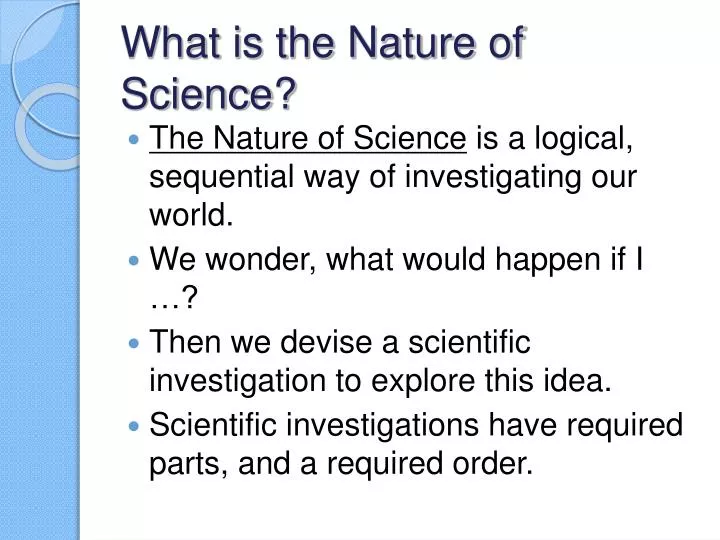

Natural science is the science of naturally occurring objects or phenomena, such as light, objects, matter, earth, celestial bodies, or the human body. Science can be grouped into two broad categories: natural science and social science. Science refers to a systematic and organised body of knowledge in any area of inquiry that is acquired using ‘the scientific method’ (the scientific method is described further below). Etymologically, the word ‘science’ is derived from the Latin word scientia meaning knowledge. To others, science is a craft practiced by scientists in white coats using specialised equipment in their laboratories.

What is science? To some, science refers to difficult high school or university-level courses such as physics, chemistry, and biology meant only for the brightest students.

This chapter will examine what these terms mean. However, none of the above can be considered ‘scientific research’ unless: it contributes to a body of science, and it follows the scientific method. Businesses and consultants research different potential solutions to remedy organisational problems such as a supply chain bottleneck or to identify customer purchase patterns. Postgraduate students working on research projects for a professor may see research as collecting or analysing data related to their project. Undergraduate students research on the Internet to find the information they need to complete assigned projects or term papers. Television news channels supposedly conduct research in the form of viewer polls on topics of public interest such as forthcoming elections or government-funded projects. Some people will say that they routinely research different online websites to find the best place to buy the goods or services they want. What is research? Depending on who you ask, you will likely get very different answers to this seemingly innocuous question.


 0 kommentar(er)
0 kommentar(er)
